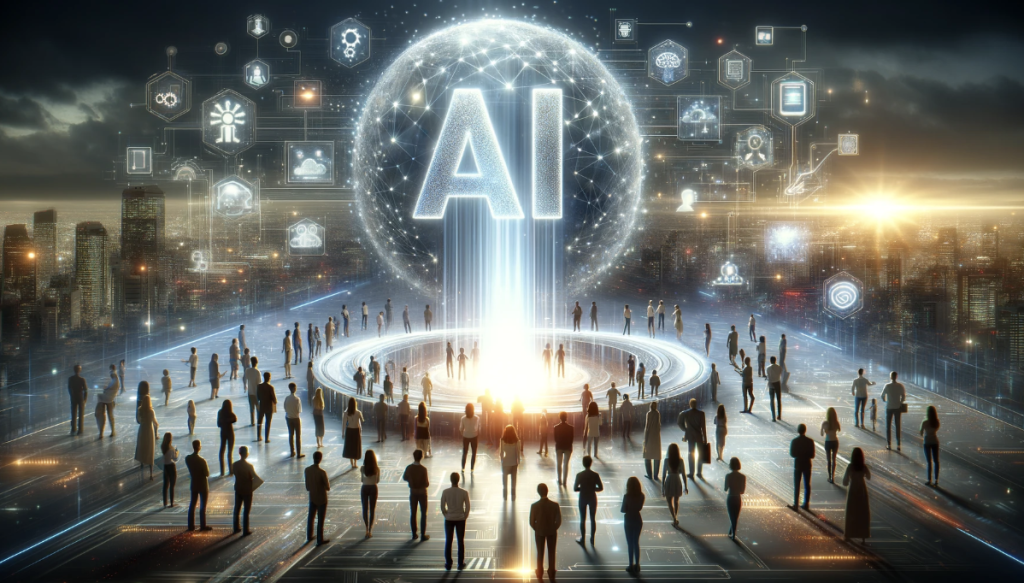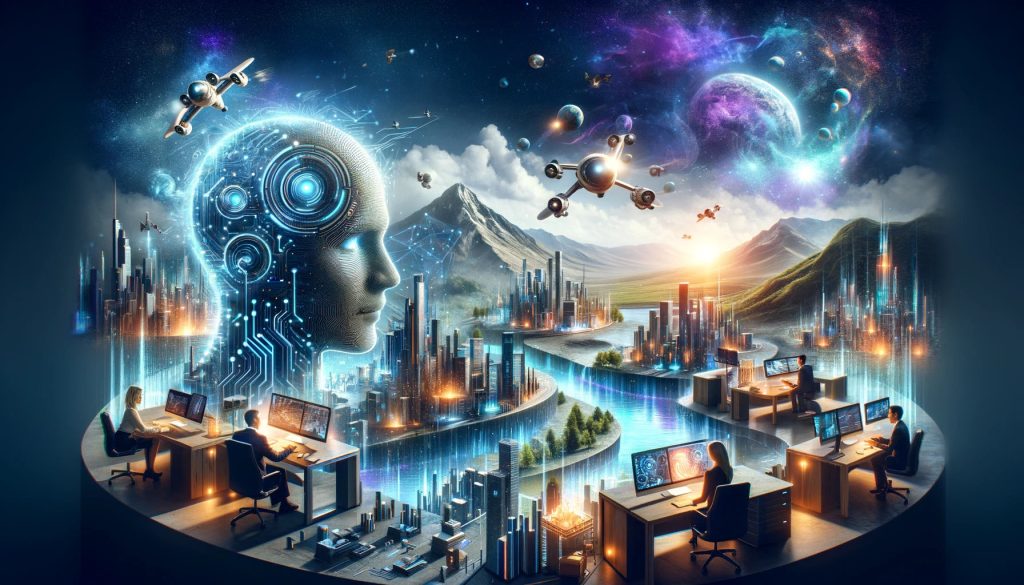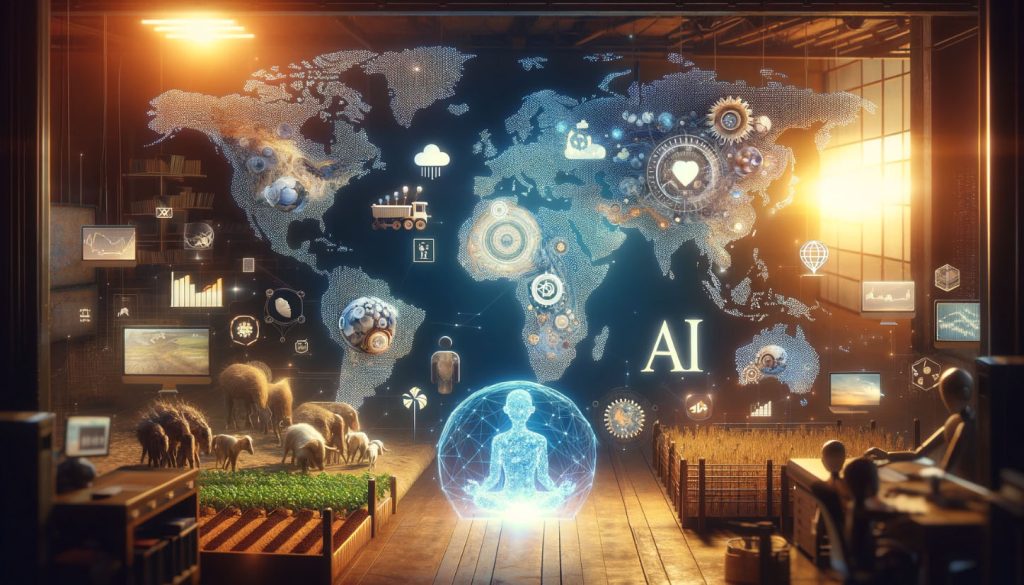
I was inspired by this bearish article on the impacts of artificial intelligence.
In the world of technology, AI stands as a beacon of potential, transforming how we approach everyday life and business. It’s not just about machines doing tasks; it’s about opening new doors. By democratizing services like design and programming, AI is breaking down barriers, making these skills accessible to many, fostering creativity and innovation. This leads to the emergence of new markets and opportunities, inviting us all to participate in a future shaped by our collective imagination.

AI’s role in enhancing productivity is another facet of its transformative power. By taking over routine tasks, it allows human creativity and problem-solving to flourish, leading to increased output and cost savings. This shift isn’t just about efficiency; it’s about redefining what we can achieve when freed from mundane tasks. This change extends to traditional industries, where AI introduces groundbreaking approaches like predictive maintenance and personalized medicine, revolutionizing sectors such as healthcare and finance.
Moreover, AI is crafting new business landscapes. It’s not just altering existing models; it’s creating entirely new ways of doing business, previously unimaginable. This evolution brings forth new revenue streams and possibilities, beckoning entrepreneurs and innovators to explore uncharted territories. The synergy of AI with human skills is equally important. AI doesn’t replace but rather complements and enhances our capabilities, leading to new job roles and career paths, showcasing a future where human potential is maximized.
The global impact of AI cannot be overstated. Its reach extends far beyond high-income nations, bringing improvements to agriculture, education, and healthcare in developing regions. This signifies a shift towards a more equitable world, where technology is a force for good, driving long-term economic growth and societal betterment. AI’s value lies not just in immediate profits but in its long-term contributions to humanity, challenging us to envision a future rich with possibilities and marked by profound global benefits.

Widening Accessibility: AI democratizes services like design and programming, making them accessible to more people and stimulating new markets.
Enhancing Productivity: By automating routine tasks, AI boosts productivity across sectors, leading to cost savings and increased output.
Innovation in Traditional Industries: AI revolutionizes industries such as healthcare and finance, introducing efficiency and innovation like predictive maintenance and personalized medicine.
New Business Models: AI creates new business opportunities that were previously impossible, opening up novel revenue streams.
Complementing Human Skills: AI works best alongside human skills, enhancing them and creating new job opportunities.
Global Impact: AI’s reach extends globally, improving life in developing regions through agriculture, education, and healthcare applications.
Long-Term Economic Growth: AI’s long-term impact on innovation and economic growth may surpass immediate economic benefits.
AI Beyond Immediate Profit: AI’s value lies in long-term societal impacts, such as improving healthcare outcomes and driving sector-wide innovation.
AI as Empowerment Tool: AI empowers by improving efficiency, aiding decision-making, and offering new insights, thus creating value beyond economics.
Potential for New Industries: AI’s transformative nature can lead to the creation of new industries and job opportunities.
Enhancing Creativity and Problem-Solving: AI augments human creativity and problem-solving, enabling new approaches to complex challenges.
Global Benefits of AI: AI addresses global challenges, providing solutions with more significant impacts than immediate financial gains.